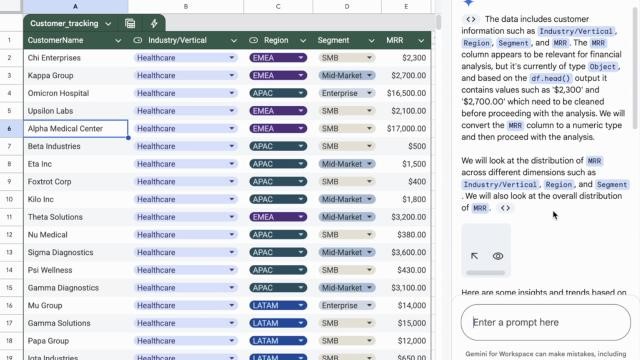Julie Kae from Qlik: Using Data to Enhance Sustainability
Reporting on environmental, social, and corporate governance (ESG) and sustainability has become crucial for businesses. Growing regulatory requirements, particularly in Europe, will mandate businesses to disclose their sustainability practices. This necessitates the effective collection and monitoring of data, posing significant challenges. Technology Magazine interviews Julie Kae, VP of Sustainability and Diversity, Equity, and Inclusion (DE&I) at Qlik, to delve into the current hurdles in data analytics for sustainability and strategies for companies to overcome these challenges while enhancing their environmental strategies.

Figure 1. Using Data to Enhance Sustainability
What Are Some of The Current Obstacles That Businesses Encounter In Sustainability-Related Data Analytics?
Figure 1 shows Using Data to Enhance Sustainability. Many businesses currently grapple with the challenge that, as recently highlighted by KPMG, nearly half of them still rely on spreadsheets for managing their ESG data. Additionally, 61% acknowledge a significant opportunity to enhance data collection and integration. While spreadsheets offer convenience for basic data management tasks, they are suboptimal for handling large datasets. Issues such as errors, version control problems, and limited analytical capabilities frequently arise. Furthermore, manipulating data manually to extract meaningful insights is time-consum ing and prone to inefficiencies. Spreadsheets also pose security risks, exposing ESG data to potential breaches and unauthorized access, which is particularly concerning given the sensitivity of such information. Consequently, businesses often encounter data silos, inadequate governance, and inefficient processes in their sustainability data collection efforts. This impedes their ability to derive actionable insights and hinders effective reporting and strategic adjustments to sustainability initiatives.
What Are The Most Effective Ways For Businesses To Utilize Data In Developing ESG Strategies?
A compelling illustration of how businesses can enhance their ESG strategies through improved data utilization comes from the UN, a longstanding partner of Qlik. Previously, the UN faced challenges in measuring its air travel carbon footprint. The sustainability department manually downloaded SAP data extracts and used a carbon emissions calculator in a spreadsheet, a process that involved significant time and effort—20 people working for six months. Concurrently, the travel department utilized SAP data for a Qlik dashboard to manage air travel expenses, but the departments operated independently.
This approach has since evolved. Now, SAP data feeds directly into the carbon emissions calculator, automating the collection and analysis of information. This streamlined process enables the sustainability team to swiftly and efficiently measure the carbon footprint. Importantly, by gaining access to this data, the travel department can now make informed decisions to book more sustainable travel options, aligning with their Sustainable Development Goals and reducing environmental impact. This transformation demonstrates how enhanced data management practices lead to more effective sustainability strategies and informed decision-making.
What Are Some Of The Benefits For Businesses In Integrating ESG Data From Silos?
Ensuring accurate ESG data is essential for sound business practices. When ESG data remains siloed, making well-informed decisions about business strategies and policies becomes impossible. It also hinders the ability to report accurately on ESG performance across the entire organization. At best, this situation may result in suboptimal strategies being implemented. At worst, it could lead to non-compliance with regulations and inaccurate reporting of sustainability performance.
To realize the benefits of ESG data, businesses must first establish a robust data foundation by effectively collecting, integrating, and delivering trusted data—ensuring it does not remain isolated in silos. Once this foundation is in place, leveraging data analytics becomes feasible. Companies can then derive insights and take actions based on comprehensive ESG information across the organization, benefiting both their reporting efforts and overall business operations.
How does Qlik utilize data to enhance its sustainability efforts?
Qlik has been committed to achieving net-zero CO2 emissions since 2022, and continually seeks opportunities to assist its customers and partners in achieving similar goals through solutions powered by its technology. For instance, Qlik ensures its upcoming Qlik Connect event is carbon neutral by using reusable materials, donating surplus food, and accounting for CO2e emissions as part of its overall reduction strategy. Additionally, Qlik operates a nonprofit program where its technology supports organizations driving significant sustainability advancements globally. Qlik also collaborates with C40 Cities, a network of mayors from leading global cities focused on addressing the climate crisis. Together, they have developed an advanced collaborative platform enabling cities to share best practices, resources, and insights. Through dashboards that provide key metric insights and facilitate benchmarking against peers, cities can enhance decision-making and accelerate the implementation of policies and investments crucial for mitigating climate change impacts. The analysis conducted through these platforms informs actionable improvement recommendations presented to decision-makers to guide impactful actions.
What are some of the innovative techniques and use cases Qlik is considering for its future sustainability strategy?
A core aspect of our strategy involves assisting businesses in consolidating all their ESG data into a unified platform where they can swiftly grasp insights and initiate actions. To achieve this goal, Qlik has recently launched a new ESG analytics application. This tool empowers businesses to aggregate data from diverse sources into a single app, enabling them to easily visualize ESG data and metrics, explore 'what if' scenarios beyond traditional reporting, and make informed decisions. Despite the vast amount of data already generated by businesses, the true value lies in integrating all of it into a single platform. This approach allows companies to gain a comprehensive view of their sustainability performance and identify areas for enhancement.
Source: Technology MAGAZINE
Cite this article:
Janani R (2024), Julie Kae from Qlik: Using Data to Enhance Sustainability, AnaechMaz, pp.92















